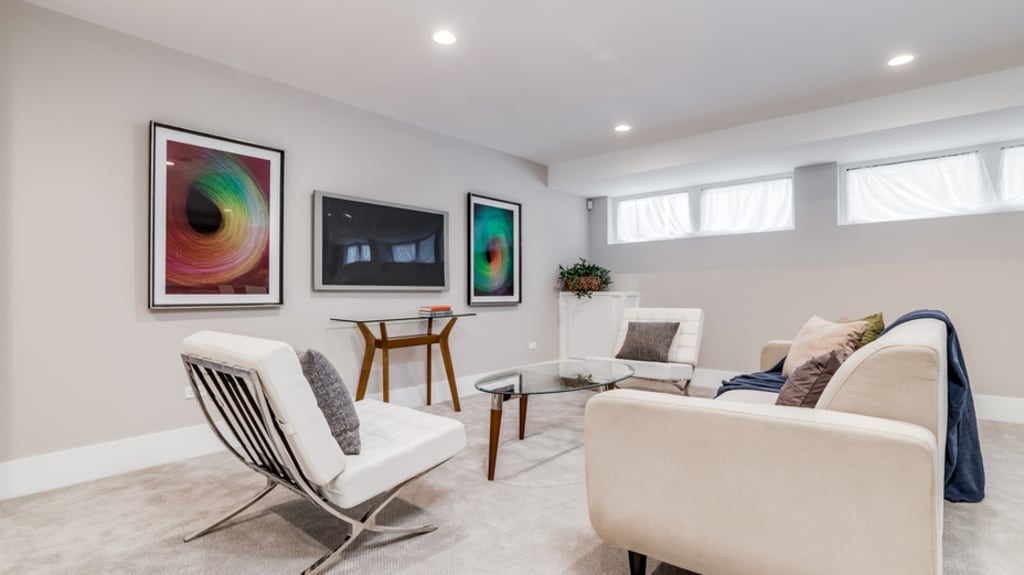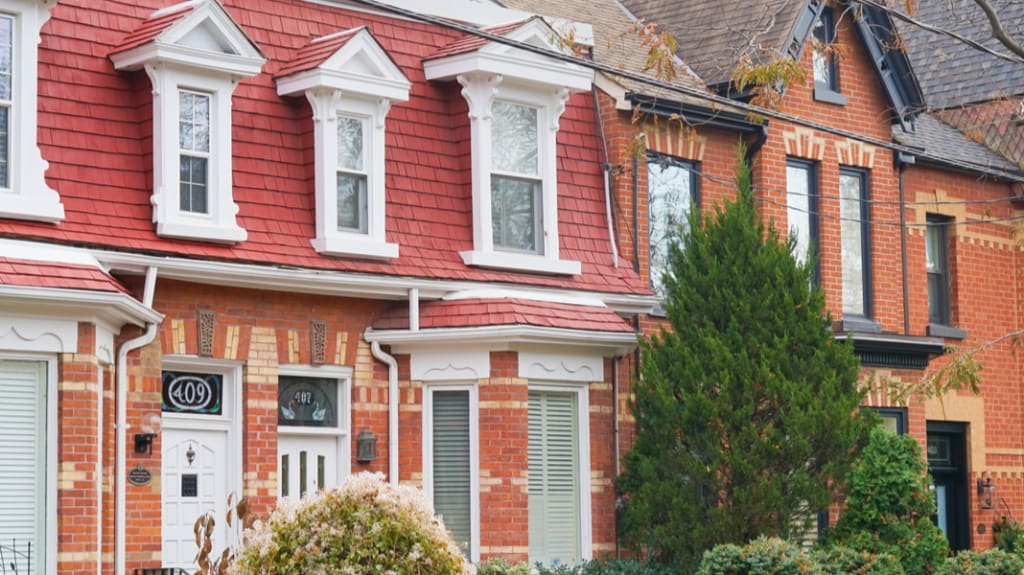Taxes are part of owning a property. The roads, sidewalks, and other local amenities have to be paid for somehow and most municipalities rely on property owners to foot the bill. But what if there was a way for you to reduce the sting at tax time? This article will go over available basement rental tax deductions, the expenses you can use to lower taxes owed on rental income, and a few missteps that can bring a tax assessor to your doorstep.
Basic types of basement rental tax deductions
We’ll assume that you’ve already got your basement set up for a renter. You’ve planned out your renovation carefully, advertised your space, interviewed hopeful renters, and drafted a lease. Now that you’ve reached this point, you should know there is a way to reduce the taxes you owe (or have already paid).
There are two types of expenses that apply to basement rental tax deductions: current and capital.

Current expenses
Current expenses are claimed the year they’re incurred. They often reoccur after a short period of time and include things like repainting steps, replacing hinges, and repairing electrical wiring. In short, they restore the property to its original condition.
Capital expenses
Capital expenses are claimed incrementally over the course of several years and include putting vinyl siding on the exterior of a wooden house, replacing wooden steps with concrete steps, and purchasing an asset (e.g., a refrigerator). Unlike current expenses, capital expenses improve the property or extend its useful life. They offer lasting advantages or benefits.
Determining the type of expense
Here are the criteria that the Canada Revenue Agency (CRA) uses to determine the type of expense:
Does the expense provide a lasting benefit?
Does the expense maintain or improve the property?
Is the expense for a part of the property or for a separate asset?
What is the value of the expense?
Is the expense for repairs made to used property you acquired to put it in a suitable condition for use?
Is the expense for repairs made to an asset in order to sell it?
Please note that there are some exceptions to these rules.
What expenses can I deduct if I rent my basement?
There’s a long list of basement rental tax deductions that you can use to reduce your rental income and the amount of tax you pay on it. Here are a few of them.
Getting paid in kind or service
Believe it or not, you don’t have to always accept money for rent. Yes, it’s kind of hard to buy your groceries with barter, but a renter can give you goods or commodities to help cover their rent. You can even have them work for you to reduce their rent. What you receive still counts as income, but you only have to pay tax on the fair market value of what you receive.
Now, that doesn’t mean you can have your grandparents move into your basement and take your rent in baked goods to avoid paying tax. This kind of arrangement assumes that you are not related to the person you are exchanging with and that the items or services you receive are something you would have had to buy for the property anyway.
Example: Alex owns a 12-room house and rents a three-room basement to Barbara. Barbara owns a pick-up truck with a plow attachment. Alex approaches Barbara and offers a rent reduction if she plows the driveway during the winter. Barbara agrees and keeps the driveway clear of snow. Alex gives his renter the promised rent break, reporting the money he gets as rental income and the snow removal service as other income, which is then reported as a business expense.
Utilities and insurance
The electric, gas, oil, water, and cable bills (TV and Internet) can all be divided up between you and your renter, but you also have the option of paying them yourself and claiming the renter’s portion as a business expense. Insurance that covers your house gets treated that way as well, but you will be expected to keep track of how much of your house is being rented out and when the expense applies to you instead of your renter.
Let’s go back to Alex’s situation and say Alex pays $3,000 for a three-year home insurance policy. Since one quarter of his home is where Barbara lives, one quarter of his insurance is a business expense: $750. However, that expense breaks down further because it gets applied over three years, giving Alex a $250 break for the current tax year and $250 for each of the two following years.
Maintenance and minor repairs
Everything from a blown light bulb to a ruined carpet can be used to reduce your rental income and the tax that goes along with it, because those expenses are required to keep your rental space functional and comfortable. If you have to hire someone to do the work, you can also deduct the labour used to complete the work as well as the necessary materials. That being said, you cannot consider yourself to be a paid laborer, so if you plan on putting on your work belt and picking up your hammer, know that you will still be the property owner in the eyes of the government.
Encourage your renter to let you know when things stop working or fall apart, so you can improve your relationship with them as a homeowner that cares about their property and the people living within it. You don’t have to become best friends, but you can and should have a good working relationship so when they inevitably move on to a better space, you know that your space will be left clean and tidy for your next renter.

Avoiding an audit
Turning your basement into an apartment is almost always considered a capital expense. However, there is another way to turn expenses into tax breaks for your basement rental: claiming capital cost allowance. Things break over time. Pipes rust, hinges wear out, glass breaks, and foundations crumble. As a result, professional rental providers often claim that their buildings lose value annually to offset their rental income.
While apartment building owners and condo companies can do this, there are two good reasons never to use this tax break on your house. First, the CRA keeps an eye open for folks who claim the allowance because it reduces rental income directly.
That said, you cannot use it to bring your rental income to zero or lower. The government assumes that if you are renting, you are doing so to make money. Claiming a loss (or so close to a loss that you might as well not bother renting) may trigger an audit.
Second, if you ever decide to sell your house, the capital costs allowance will come back with a vengeance. When you renovate or repair your home, the money you spend increases your home’s value. Remember the adjusted cost base? That ever-increasing number is used to calculate the profit you make when you eventually decide to sell your home. The price you receive for your house minus the adjusted cost base and the money you had to spend to make the sale is what you pay capital gains tax on.
Well, suppose you said your house was worth less money than the final sales price. In fact, suppose that when you had capital expenditures completed, you said that the repairs caused the value of your house to go down instead of up. In that case, the amount you claimed as depreciation turns itself into “recaptured” earnings because the government will remember that you used capital cost allowance to lower your taxes in the past. Capital gains are taxed at 50% of what you gain (so if you make $50,000 when you sell your house, you only pay tax on $25,000), while a recaptured capital costs allowance gets taxed at 100%, just like standard income.
How do I prepare my basement for rent?
If your house is not already set up for a renter, you will almost certainly have to renovate it. Fortunately, our Advisors can guide you through obtaining a contractor, optimizing the space under your main floor, determining if you want to rent on a short-term or long-term basis, and converting your basement into a rental.





